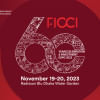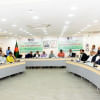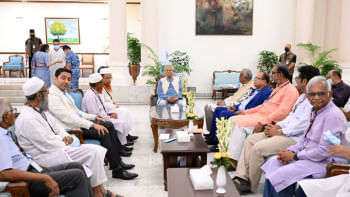Priorities are set accurately, but inflation will be biggest headache

The leading chambers and trade body leaders have praised the government for fixing the priority areas of development, but they also said controlling inflation will be biggest headache for the Sheikh Hasina administration in the next fiscal year.
The Metropolitan Chamber of Commerce and Industry believes it was extremely challenging for the finance minister to prepare the new budget amid the global uncertainly caused by the pandemic and the Russia-Ukraine conflict.
In the budget, the government has prioritised five areas, which are inflation containment, agriculture and overall food security, human resource development, boost in domestic investment, increase exports and promotion of export diversification, job creation and rural development, the chamber said.
The MCCI thanks the government for prioritising the areas to ensure lives and livelihood.
It also said there is ample scope for reforming the tax policy, increasing the capacity of tax administration, and providing proper public services.
The MCCI said it has always suggested meaningful structural changes in the tax administration so that it could aptly carry out revenue collection.
In the existing infrastructure, many eligible organisations with high earnings remain outside the purview of tax, while individuals/businesses regularly paying taxes are burdened with more and more taxes.
"This needs to be addressed properly."
Jashim Uddin, president of the Federation of Bangladesh Chambers of Commerce and Industry, thinks the government will face some challenges in the next fiscal year, but controlling inflation will be the biggest challenge.
He also criticised the finance minister's proposal to give amnesty to the laundered money, under which black money could be legalised by paying 7 to 15 per cent tax.
The Foreign Investors' Chamber of Commerce and Industry (Ficci) feels that the gross domestic product's growth target of 7.5 per cent is achievable provided that, among others, the GDP investment ratio increases to the expected level.
The chamber also appreciated notable allocation for the health sector and education.
However, the Ficci expressed its concerns about the reduced allocation for the key mega projects, which will result in a slow implementation as well as raise the total cost of the project.
"We feel instead of reducing the allocation in mega-project, the government could concentrate on enhancing the quality of spending, which could bring further efficiency as well as generate employment," the chamber said in its budget reaction.
It also expresses concern about bridging the deficit from banking sources which may tighten the liquidity situation.
The president of American Chamber of Commerce in Bangladesh, Syed Ershad Ahmed, expected more incentive would be extended to the agriculture sector.
He said the prices of agricultural equipment and hybrid vehicle should be reduced.
He said no significant economic growth is conceivable without a sustained foreign exchange reserve growth.
"Hence, instead of gross import ban, we should speed up the foreign-funded projects' implementation and reconsider own funded projects having a sizeable import component."
"We strongly recommend effective modernisation managing all ports' operation and allowance of bonded warehouse facility for non-RMG exports too," Ahmed added.
"I thank the finance minister for the proposed exemption for start-ups on all types of reporting besides tax return will ease the challenges they face," said Syed Almas Kabir, former president of Bangladesh Association of Software and Information Services.
"Also, allowing them to set off and carry forward losses for nine years, and withdrawal of restrictions on expenditure will facilitate the young entrepreneurs to grow their businesses."
He said lowering the turnover tax to 0.1 per cent from 0.6 per cent for the start-up companies will be a great help for the budding businesses.
However, it is very much discouraging to see the internet services has not been included in the list of IT-enabled services in spite of being the primary ingredient of Digital Bangladesh, he added.

 For all latest news, follow The Daily Star's Google News channel.
For all latest news, follow The Daily Star's Google News channel. 








Comments